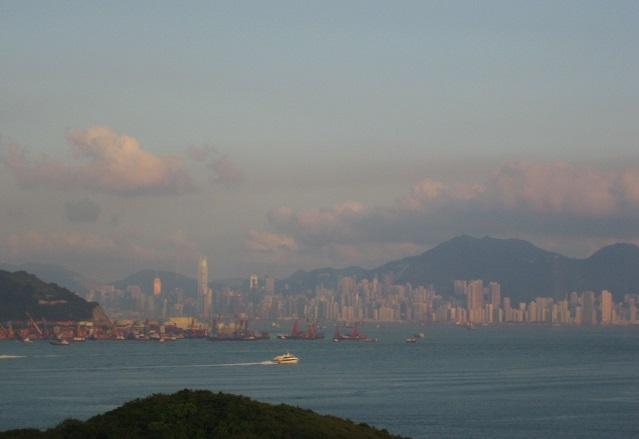Beijing’s steady reinterpretation: ‘One China, One System’
Posted By William Baulch on February 8, 2016 @ 12:30
The failure of the ‘one country, two systems’ principle that governs relations between China and Hong Kong should concern states in the Asia–Pacific. The erosion of Hong Kong’s autonomy undermines pro-unification forces in Taiwan and bolsters the case of pro-independence activists. It may also result in Taiwan distancing itself further from China, a move that would have serious repercussions for regional stability.
In July 1997, when British administration of Hong Kong ceased, the region reunited with the People’s Republic of China. The handover occurred after lengthy negotiations in which Beijing promised Hong Kong could maintain control over its domestic affairs, including its capitalist economy and legal system. It seems that promise hasn’t been kept.
Freedoms in Hong Kong have gradually eroded in recent years, reportedly under pressure from the mainland [2]. Frustration with China’s interference in Hong Kong’s domestic politics boiled over in 2014 at the prospect that candidates for the region’s Chief Executive would be pre-screened by Beijing. That sparked months of protests which forced the closure of key parts of the city. Authorities outwaited the protesters without making concessions and the issue remains largely unresolved.
Tensions are on the rise again in light of news that five employees from a Hong Kong publishing company have disappeared since October 2015. The publishing house sold texts critical of the Chinese government that are banned on the mainland. It’s suspected that the Hong Kong residents [3] have been abducted and detained in China by security services. If true, it would constitute a direct assault on Hong Kong’s freedom of speech and sovereign authority to maintain law and order. The dramatic appearance last Monday [4] of the publishing house’s co-owner, Gui Minhai, in the custody of mainland police supposedly of his own volition, has done little to ease fears over the erosion of freedoms in the autonomous region.
Those sort of issues inevitably have ramifications for the democratic, self-governing Taiwan, which officially supports the concept of ‘one China’. Chinese President Xi Jinping believes improving relations across the Taiwan Strait should lead to unification under the ‘one country, two systems’ [5] principle. Yet with the same policy appearing to fail in Hong Kong, is such a deal truly possible?
Taiwan has been a potential source of conflict in East Asia since Nationalist forces retreated to the island at the end of the civil war in 1949. After becoming a democracy in 1996, Taiwan has toyed with the notion of independence, particularly during the 2000–2008 presidency of Chen Shui-bian from the pro-independence Democratic Progressive Party (DPP). In response, Beijing passed a law in 2005 requiring that Taiwan be unified with China through military means in the event that it actively sought independence. However, the US has a security commitment to Taipei [6] that would likely force Washington to react to a Chinese assault on Taiwan. Active conflict over the Taiwan Strait therefore remains a serious and credible threat.
Taiwan hasn’t sought independence for several reasons. Beijing maintains an arsenal of missiles facing Taiwan, capable of causing immediate and widespread destruction. Beijing’s ‘Three Links’ policy [7] and financial incentives to invest in the mainland have made Taiwan economically reliant on China [8]. The pro-China Kuomintang Party (KMT) also took back the presidency after the tense years under Chen Shui-bian. Most importantly, many Taiwanese retain a Chinese identity and wish to maintain the status quo. But military threats, economic dependence and a Chinese identity may no longer be enough to forestall the independence movement in Taiwan.
The number of people living in Taiwan identifying as Chinese is falling [9] and most now identify as Taiwanese. A clear majority of the population prefer independence to unification and a growing number of Taiwan’s youth seek [10] ‘immediate independence’ even at the risk of conflict. The recent election of a DPP president and legislature is indicative of this transition. Pro-unification advocates will have to rely more heavily on distinctions within the ‘one country, two systems’ argument to maintain support. But with the apparent failure of that policy in Hong Kong, they’ll be on shaky ground.
President-elect Tsai Ing-wen’s support for the status quo should prevent an immediate deterioration in cross-Strait relations. However, calls for independence are growing and the situation in Hong Kong lends the movement additional strength. China appears to recognise the risk, warning Taiwan just hours after the election [11] that any push for independence would be ‘poison’. Yet Beijing’s parading of Mr Gui on state media just days later reveals a concerning failure of judgement, if not a degree of apathy.
Those troubles go far beyond China, Hong Kong and Taiwan. If Beijing continues to pressure Hong Kong, the ‘one country, two systems’ argument may become untenable for Taiwan’s pro-unification forces, enabling pro-independence campaigners to dominate the debate. In those circumstances, Beijing–Taipei relations will break down. Any subsequent confrontation in the Taiwan Strait could trigger the US–Taiwan security commitment, putting two East Asian powers on a collision course and essentially forcing US allies, including Australia, to choose between Beijing and Washington. This potential collision course implicates all regional actors in ensuring Hong Kong retains its autonomy.
Article printed from The Strategist: https://aspistrategist.ru
URL to article: /beijings-steady-reinterpretation-one-china-one-system/
URLs in this post:
[1] Image: https://aspistrategist.ru/wp-content/uploads/2016/02/29513044_2952edc4a3_o.jpg
[2] reportedly under pressure from the mainland: https://freedomhouse.org/report/freedom-world/2015/hong-kong
[3] It’s suspected that the Hong Kong residents: http://www.bbc.com/news/world-asia-china-35217218
[4] dramatic appearance last Monday: http://www.abc.net.au/news/2016-01-18/missing-hong-kong-book-publisher-gui-minhai-china-custody-arrest/7094276
[5] unification under the ‘one country, two systems’: http://www.scmp.com/news/china/article/1601307/one-country-two-systems-right-formula-taiwan-xi-jinping-reiterates?page=all
[6] a security commitment to Taipei: http://www.mofa.gov.tw/en/News_Content.aspx?n=539A9A50A5F8AF9E&s=400C04ACEDE32680
[7] ‘Three Links’ policy: http://www.china.org.cn/english/taiwan/82711.htm
[8] economically reliant on China: http://www.wsj.com/articles/taiwan-grapples-with-closer-china-ties-1418000788
[9] identifying as Chinese is falling: http://www.taipeitimes.com/News/taiwan/archives/2015/02/05/2003610873
[10] growing number of Taiwan’s youth seek: http://www.taipeitimes.com/News/front/archives/2014/04/03/2003587155
[11] just hours after the election: http://www.reuters.com/article/taiwan-election-idUSKCN0UV02I
Click here to print.
